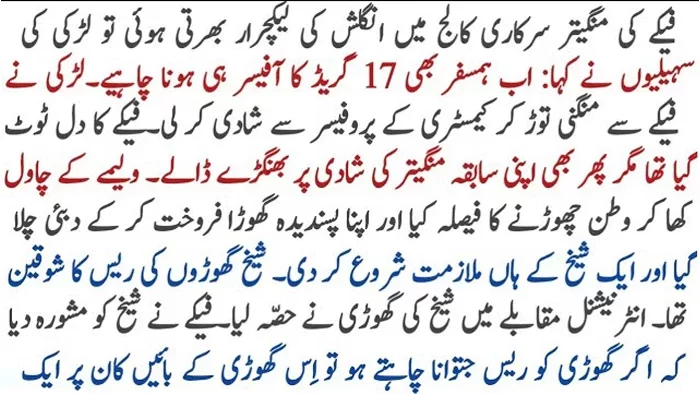Switching to a vegan diet can be an excellent way to promote sustainable weight loss while also benefiting from numerous health perks. However, to achieve the best results, it’s crucial to approach this plant-based lifestyle with strategic planning and awareness. In this article, we’ll explore how the vegan diet can support maximum weight loss, provide practical tips, meal ideas, and essential insights to ensure your weight loss journey is healthy and effective.
Introduction to Veganism and Weight Loss
The vegan diet excludes all animal products, including meat, dairy, eggs, and honey, and focuses on plant-based foods like fruits, vegetables, grains, legumes, nuts, and seeds. Veganism is often linked to various health benefits, including improved heart health, reduced risk of chronic diseases, and even enhanced skin. But how does it facilitate weight loss?
Plant-based foods tend to be lower in calories and higher in fiber, which can help you feel fuller for longer while consuming fewer calories. Additionally, vegan diets are typically rich in nutrients and antioxidants that boost overall health and promote fat loss. However, like any other diet, a vegan diet needs to be well-balanced to avoid nutrient deficiencies or overeating processed vegan foods.
How the Vegan Diet Supports Weight Loss
1. Low-Calorie, High-Nutrient Foods
Vegan diets are primarily composed of fruits, vegetables, legumes, whole grains, and nuts—foods that are nutrient-dense but lower in calories. This helps create a calorie deficit, which is essential for weight loss. A large salad, for instance, will provide you with vitamins, fiber, and minerals but fewer calories than a burger.
2. Increased Fiber Intake
One of the key components of plant-based eating is fiber. Fiber helps control hunger by making you feel full, which reduces the likelihood of overeating. A high-fiber diet is also great for maintaining stable blood sugar levels, further aiding weight management. Soluble fiber, found in oats, beans, and fruits, can slow digestion, keeping you fuller for longer.
3. Higher Satiety with Plant-Based Proteins
Despite the misconception that vegan diets are protein-deficient, plant-based protein sources such as lentils, chickpeas, quinoa, tofu, and tempeh provide sufficient protein to support muscle maintenance and growth, which is important for metabolism. These proteins also help in controlling hunger, as protein-rich meals are more satiating.
4. Reduction in Processed Foods
Although some processed vegan foods exist, a well-planned vegan diet encourages whole foods and discourages processed junk. This natural shift away from high-calorie, low-nutrient processed foods aids in weight loss.
5. Enhanced Metabolism from Plant-Based Foods
Vegan diets can boost metabolism due to the high intake of fruits and vegetables, which are rich in antioxidants. Some studies suggest that plant-based eaters have a more efficient metabolism compared to omnivores, meaning they burn more calories even at rest.
Practical Tips for Maximum Weight Loss on a Vegan Diet
1. Prioritize Whole Foods
For effective weight loss, focus on whole foods like vegetables, fruits, whole grains, legumes, nuts, and seeds. These foods are packed with nutrients, fiber, and antioxidants that promote fat loss and overall health. Avoid relying on vegan junk food like chips, cookies, and highly processed meat alternatives, as they can be calorie-dense and nutrient-poor.
2. Plan Your Meals Around Protein and Fiber
A common mistake for beginners on a vegan diet is not getting enough protein or fiber. Plant-based proteins and fiber are essential for controlling hunger and preventing muscle loss during weight loss. Include sources like beans, lentils, quinoa, tofu, chia seeds, and hemp seeds in your meals.
For example:
- Breakfast: Chia seed pudding with berries and almond milk
- Lunch: Lentil and quinoa salad with mixed greens and avocado
- Dinner: Tofu stir-fry with brown rice and veggies
3. Watch Out for Portion Sizes
Even healthy vegan foods can lead to weight gain if consumed in large quantities. High-calorie plant foods like nuts, seeds, avocados, and plant oils should be eaten in moderation. Aim for portion control, particularly with calorie-dense foods.
4. Limit Vegan Processed Foods
Many vegan alternatives like burgers, sausages, and faux cheeses are still processed and often loaded with unhealthy fats and sodium. While convenient, these products can hinder weight loss. Instead, opt for homemade versions using whole ingredients, such as veggie patties made from beans or lentils.
5. Hydrate Adequately
Drinking water is essential for any weight loss journey. It helps flush out toxins, reduces water retention, and can also help control hunger. Herbal teas and infused water are also great options to stay hydrated throughout the day.
6. Incorporate Healthy Fats
While fats are calorie-dense, healthy fats are still important for your overall well-being and can even support weight loss when consumed in moderation. Include sources of omega-3 fatty acids like flaxseeds, chia seeds, walnuts, and hemp seeds in your diet.
7. Exercise Regularly
A vegan diet can significantly contribute to weight loss, but exercise is also a key factor. Regular physical activity, including cardio and strength training, boosts metabolism, helps burn calories, and promotes muscle growth, which is vital for fat burning. Combining a well-balanced vegan diet with consistent exercise will yield the best results.
Sample Vegan Meal Plan for Weight Loss
Here’s a 7-day vegan meal plan to kick-start your weight loss journey:
Day 1
- Breakfast: Smoothie with spinach, banana, almond milk, chia seeds, and protein powder
- Lunch: Hummus and veggie wrap with whole wheat tortilla, carrots, cucumber, and spinach
- Dinner: Quinoa and black bean bowl with salsa, avocado, and roasted vegetables
- Snack: Apple slices with almond butter
Day 2
- Breakfast: Oatmeal with berries, flaxseeds, and almond milk
- Lunch: Lentil soup with mixed greens salad
- Dinner: Stir-fried tofu with broccoli, bell peppers, and brown rice
- Snack: Carrot sticks with hummus
Day 3
- Breakfast: Smoothie bowl with mixed berries, banana, and granola
- Lunch: Chickpea and avocado salad with kale and lemon vinaigrette
- Dinner: Sweet potato and black bean tacos with salsa and guacamole
- Snack: A handful of mixed nuts
Day 4
- Breakfast: Vegan pancakes with blueberries and maple syrup
- Lunch: Quinoa and roasted vegetable salad with tahini dressing
- Dinner: Lentil curry with brown rice
- Snack: Sliced cucumber with hummus
Day 5
- Breakfast: Chia seed pudding with almond milk and fresh berries
- Lunch: Black bean burger with avocado and a side salad
- Dinner: Zucchini noodles with tomato sauce and vegan parmesan
- Snack: Celery sticks with almond butter
Day 6
- Breakfast: Tofu scramble with spinach, tomatoes, and whole grain toast
- Lunch: Lentil and quinoa stuffed bell peppers
- Dinner: Vegetable and tofu stir-fry with brown rice
- Snack: Mixed fruit bowl
Day 7
- Breakfast: Smoothie with kale, banana, almond butter, and almond milk
- Lunch: Vegan Buddha bowl with roasted chickpeas, sweet potatoes, and tahini
- Dinner: Vegan chili with kidney beans and quinoa
- Snack: A handful of almonds and dried fruit
Key Nutrients to Watch on a Vegan Diet
To ensure optimal health and prevent deficiencies while following a vegan diet for weight loss, it’s important to be mindful of certain nutrients. Here are the most crucial ones:
- Vitamin B12: Since B12 is found mostly in animal products, consider taking a B12 supplement or consuming fortified foods like plant-based milks and nutritional yeast.
- Iron: Plant-based sources of iron include spinach, lentils, and fortified cereals. Combine iron-rich foods with vitamin C sources like citrus fruits to enhance absorption.
- Calcium: Calcium can be found in fortified plant milks, tofu, almonds, and leafy greens like kale and collard greens.
- Omega-3 Fatty Acids: These healthy fats are essential for heart health. Include flaxseeds, chia seeds, and walnuts in your diet or consider a vegan omega-3 supplement derived from algae.
- Vitamin D: Vitamin D is essential for bone health, and while it can be obtained from sunlight, supplementation may be necessary, especially in the winter months or for those who don’t get enough sun exposure.
Common Mistakes to Avoid on a Vegan Diet
1. Relying on Processed Vegan Foods
Many newcomers to veganism turn to processed meat substitutes and convenience foods. While these are acceptable occasionally, they should not be the foundation of your diet.
2. Not Eating Enough Protein
Ensure you’re getting adequate protein from sources like beans, lentils, tofu, tempeh, and quinoa to maintain muscle mass while losing weight.
3. Overeating High-Calorie Plant Foods
Healthy fats like avocados, nuts, and seeds are nutrient-dense but also high in calories. Keep an eye on portion sizes to avoid excessive calorie intake.
4. Ignoring Nutrient Deficiencies
A vegan diet can sometimes lead to nutrient deficiencies, especially if not planned carefully. Consider taking supplements for vitamin B12, omega-3s, and vitamin D as needed.
Conclusion
A well-balanced vegan diet can be a highly effective tool for weight loss, especially when centered on whole foods, proper portion control, and adequate nutrient intake. By focusing on nutrient-dense, plant-based foods, avoiding processed vegan junk, and incorporating regular exercise, you can unlock maximum weight loss results while also improving your overall health.
With the right approach, not only will you shed those extra pounds, but you’ll also enjoy the long-term benefits of a more energetic and healthier lifestyle. Whether you’re just starting or are already a vegan looking to optimize your diet, following these guidelines will help you achieve sustainable, successful weight loss.



